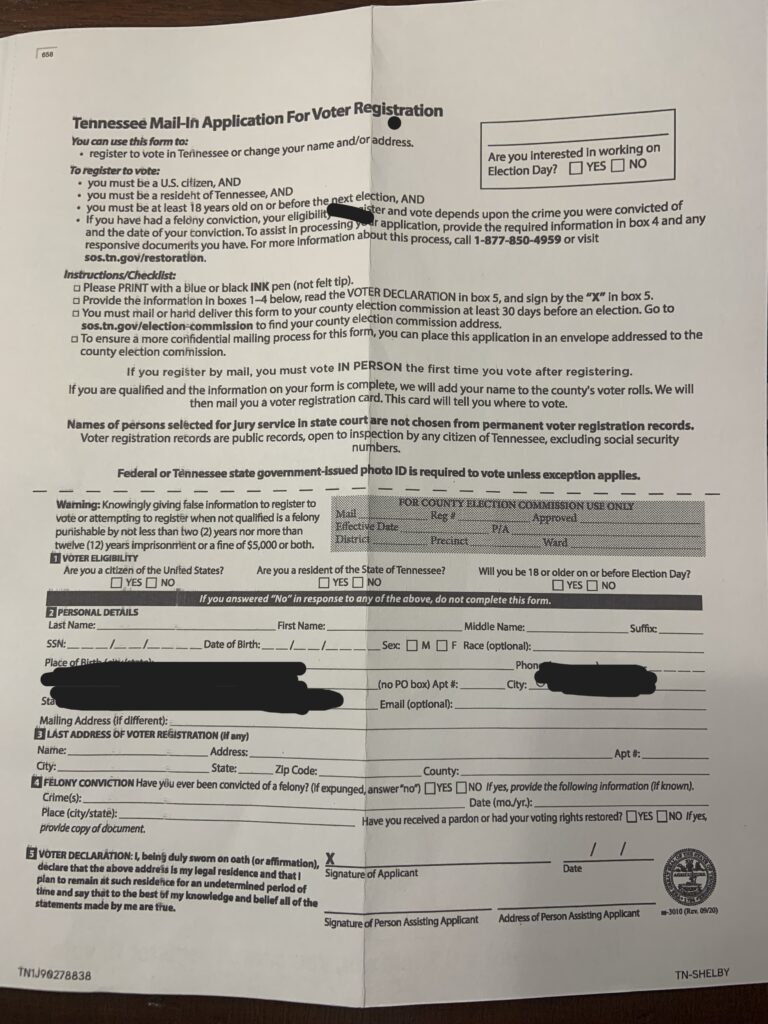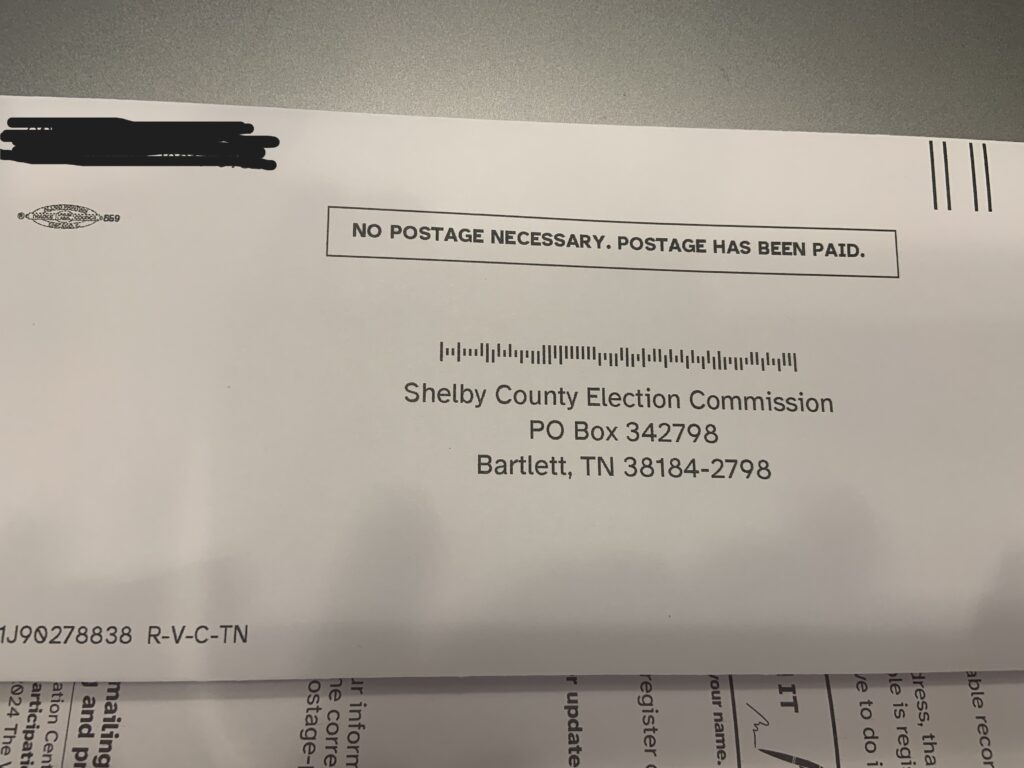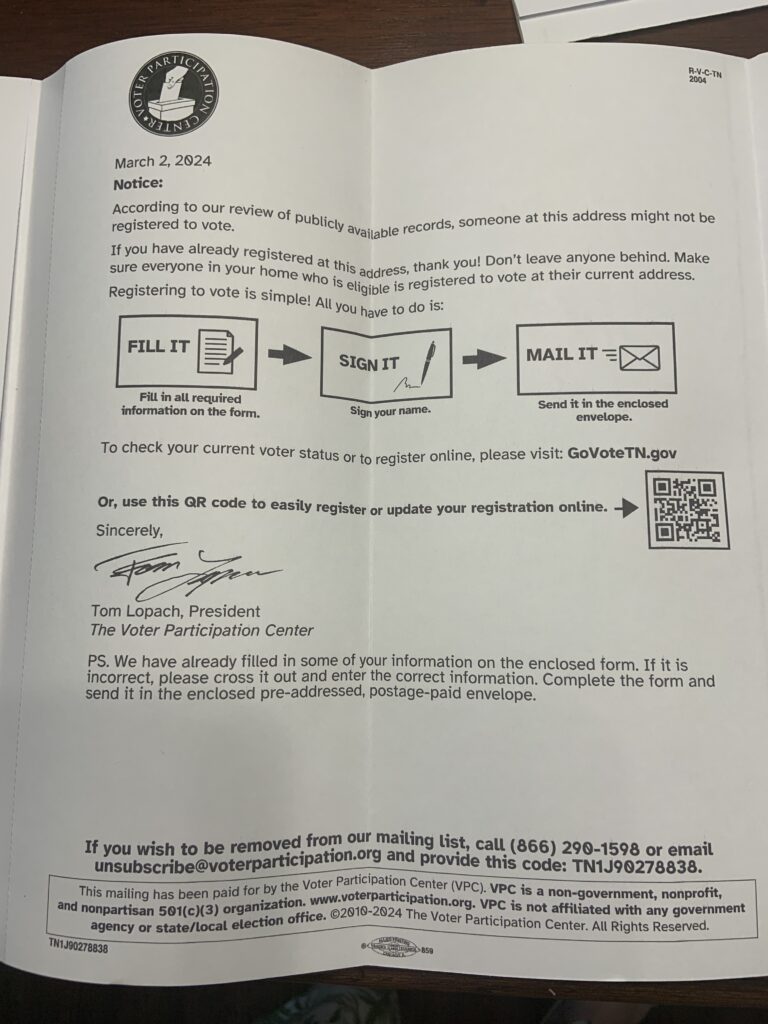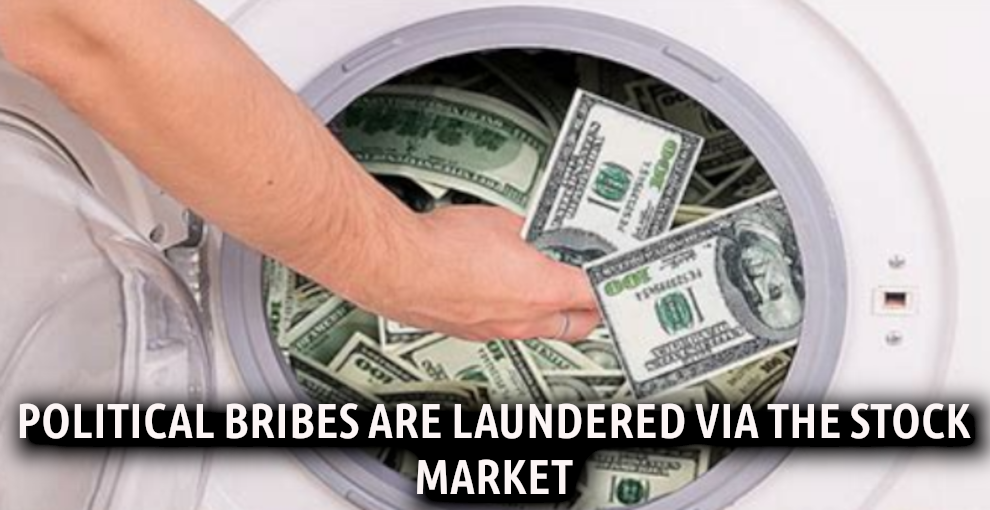![]()
Meet The Shadowy Left-Wing Nonprofit Harvesting Voter Data To Juice Democrat Turnout

A closer look at the Voter Participation Center reveals how it uses harvested voter data to enhance Democrats’ election machine.
In an era of U.S. elections where ballots — not voters — are the favored currency, nonprofit voter registration has become instrumental in determining which candidate comes out on top at the ballot box.
While conservatives have largely failed to recognize the necessity of such operations in driving Republican voter turnout, leftists haven’t. Unlike their opponents, Democrats have amassed a well-funded machine that’s accumulated their party massive electoral wins in recent cycles, even as the head of their party remains widely unpopular among the American electorate.
Central to Democrats’ efforts is the Voter Participation Center (VPC), a left-wing nonprofit that, despite claiming to be “nonpartisan,” aims to create a “New American Majority” by facilitating “registration of numerous Democratic-leaning voting populations” such as “unmarried women, [racial] minorities and millennials,” according to InfluenceWatch.
Originally known as Women’s Voices Women Vote prior to 2011, VPC was founded by Page Gardner, a prominent Democrat political operative connected to the Kennedy family, with help from John Podesta, the chair of Hillary Clinton’s 2016 presidential campaign. Today, the group is run by Tom Lopach, a Democrat operative and head of the Center for Voter Information (CVI), VPC’s “sister” organization that helps it conduct partisan get-out-the-vote operations.
A 2023 Restoration of America report shows just how influential VPC and CVI’s voter outreach has been in recent elections. During the 2020 contest, for example, the groups’ registration-by-mail campaign purportedly produced an additional 272,443 votes, most of which came from battleground states such as Arizona, Pennsylvania, and Michigan. Those figures are higher than the vote totals VPC claimed it netted during the 2016 and 2018 election cycles.
But VPC isn’t your typical GOTV nonprofit. A closer look at the group’s operations reveals how it uses voter data harvested through its registration efforts to enhance the left’s election machine.
How VPC Operates
VPC’s primary method of registering its “New American Majority” is through the use of mailers it sends to prospective electors.
After accumulating “commercial and public data to identify people who are eligible to vote but who need to register,” the group sends registration forms to households it believes are occupied by these eligible voters. A Tennessee registration form sent to a state resident and provided to The Federalist shows how VPC pre-populates information about the individual on these forms, such as their address.

The form also comes with a pre-paid postage envelope that includes the recipient’s return address already filled out. The envelope is addressed to the local county election office.

Communication records obtained by The Federalist show how VPC notifies state election offices about its plans to disburse these materials to prospective voters prior to doing so.
On Dec. 15, 2023, for example, VPC Deputy Director of Partnerships and Outreach Sarah Mitchell sent an email notifying Virginia Elections Commissioner Susan Beals and members of the commonwealth’s elections department of VPC’s plans to mail voter registration forms to prospective voters on March 21. Mitchell claimed the March mailings would be the “first of three large scale voter registration mailings” the group plans to send to Virginians in 2024 and sent to “people who are turning 18 and newly eligible to register to vote, people who have moved between counties or into your state and according to our records need to update their registration, and addresses where our records show unregistered voters likely live.”
Mitchell sent a follow-up email on March 7, notifying the aforementioned officials that VPC’s second batch of voter registration mailers would be distributed to residents around June 28.
[RELATED: Why Did This Left-Wing Elections Group Send An Iraqi Refugee A Voter Registration Form?]
Speaking with The Federalist, Ned Jones, director of the Citizens Election Research Center of the Election Integrity Network, explained that sending multiple mailings to potential voters appears to be a strategy that allows VPC to narrow down its list of which voters it should direct its GOTV efforts toward as Election Day nears.
It seems to be their attempt to “get a feel for who’s going to vote and who might not,” Jones said. “It’s really complex.”
VPC’s multiple mailings in Virginia match a strategy the group has deployed in other states, according to Jones.
Voter Data Collection
Encouraging voters to mail their voter registration applications to their local election office is just one aspect of VPC’s strategy, however. The group also provides prospective electors with an option to register through its online portal.
Included in VPC’s mailings is a paper with a QR code that individuals can scan with their phones. After clicking on the link, users are taken to an online registration portal operated by VPC and Rock the Vote (RTV), “a left-progressive-aligned organization … whose stated mission is to engage and ‘build the political power of young people,’” according to InfluenceWatch.

Users are required to enter their email address and zip code before proceeding. Upon continuing through the process, these users are required to provide personal information, such as their full name, address, and date of birth. They’re also asked to answer a series of questions, such as “Is this your first time registering to vote?” and “Why are you registering to vote?”
In a March 5 email to Beals and Virginia’s election officials, Mitchell claimed that including a QR code on its mailings has “resulted in a roughly 20% shift from recipients returning [VPC’s] mail applications to instead filling out online voter registration applications.” She separately contended in an email sent to these same officials two days later that “close to 50% of the young people who received [VPC’s] mail chose to register [online].”
What’s most alarming, however, is that registering through the VPC-RTV portal allows these groups to acquire voters’ personal data and share it with other third parties. Located at the bottom of the registration page is RTV’s privacy policy, which stipulates that it may share an individual’s “personal information” with “partners and organizations with principles and missions that overlap with those of RTV,” “affiliates and companies with whom [RTV] share[s] common ownership,” and other listed third parties.
Data classified as “personal” by RTV includes an individual’s identifiers (name, address, Social Security number), demographic information (race, sex, marital status), professional information (employer), internet activity information (IP address, language preferences, device ID), and non-precise geolocation information (“geolocation derived from [a user’s] IP address”).
The amount of information collected by RTV is dependent on how a user interacts with its online services, according to the privacy policy.
RTV does, however, allow users to “opt out” of “supporter list exchanges.” (That’s when RTV shares users’ identifier information with “named partners and other organizations with principles and/or missions that overlap with those of RTV”).
Neither VPC nor RTV responded to The Federalist’s request for comment on what specific third parties they share personal voter data acquired through the voter registration portal with. Nor did either group respond when pressed on how long they have been collaborating on voter registration activities.
Growing Concerns
VPC’s antics have drawn attention from prominent GOP election officials.
Alabama, Louisiana, and Mississippi’s secretaries of state have issued press releases in recent months warning voters that VPC’s mailers are not official correspondence from their respective offices. Alabama Secretary of State Allen West went a step further by “officially discourag[ing]” the “targeted” mailings, which he said represents “partisan interference by out-of-state, third-party organizations [that] is unnecessary, confusing, and counterproductive.”
Concerns about VPC’s partisanship are not new. Last week, the Capital Research Center’s Parker Thayer shared a photo of what appears to be a VPC mailing with former First Lady Michelle Obama on the cover.
VPC did not respond to The Federalist’s request for comment on how it can claim to be a “nonpartisan” organization while using Obama’s likeness on its mailers.
“Putting Michelle Obama on the front of a voter registration form is obviously a tactic to filter out Republicans, who will be more likely to throw it out after assuming it’s a Democrat fundraiser,” Thayer wrote.

Legal Remedies
Legislative efforts aimed at stymying third-party groups from flooding states with election mailers have largely failed to materialize, according to Jones. Even in states where such legislation passed, left-wing groups immediately sued to stop its implementation.
That’s what happened three years ago in Georgia, when state Republicans passed SB 202, a benign election integrity measure that included a provision prohibiting third parties from mailing pre-filled absentee ballot applications to voters. Shortly after Gov. Brian Kemp signed the measure into law, Democrat-aligned groups launched a barrage of lawsuits baselessly alleging the statute suppressed voters, particularly racial minorities.
A federal judge shot down Democrat groups’ request that a preliminary injunction be placed on the law in October, ruling plaintiffs failed to show evidence SB 202 “intentionally discriminate[s] against black voters.”
While legislative fixes to VPC’s shenanigans are lacking, some conservative legal groups are taking action against the Democrat-aligned organization ahead of the 2024 election. On June 24, Restoring Integrity and Trust in Elections (RITE) filed a complaint with the North Carolina State Board of Elections against VPC, CVI, and Rock the Vote “for unlawfully collecting and retaining personally identifiable information (‘PII’) from voter registration applications.”
RITE alleged that the aforementioned groups violated North Carolina law, which prohibits “any person who is not an elections official or who is not otherwise authorized by law to retain a registrant’s signature, full or partial Social Security number, date of birth, or the identity of the public agency at which the registrant registered.” The legal group additionally asked the board to investigate the groups based upon these allegations.
“The board of elections must investigate and, if necessary, put a stop to this outrageous betrayal of voter trust,” RITE President Derek Lyons said in a statement. “Retaining personally identifiable information demonstrates that groups like this may be more interested in their own agendas than in merely registering voters.”
The House Judiciary Committee released a damning report Wednesday morning with shocking details of corporate collusion to silence conservative viewpoints through targeting Breitbart News, Joe Rogan, and Twitter (now X) among others.
The committee released its report just hours before hearing testimony from Herrish Patel, President of Unilever USA, and Christian Juhl, Global Chief Executive Officer of GroupM. Chairman Jim Jordan (R-OH) alleges those companies, as members of the Global Alliance for Responsible Media’s (GARM) Steer Team, may have violated antitrust laws in their efforts to deprive conservative media outlets and personalities as well as companies daring to platform conservative viewpoints of advertising dollars.
“Through GARM, large corporations, advertising agencies, and industry associations participated in boycotts and other coordinated action to demonetize platforms, podcasts, news outlets, and other content deemed disfavored by GARM and its members,” the report reads. “This collusion can have the effect of eliminating a variety of content and viewpoints available to consumers.”
GARM, an initiative of the powerful World Federation of Advertisers (WFA), holds tremendous market power in the advertising industry. The report, “GARM’S Harm: How the World’s Biggest Brands Seek to Control Online Speech”, reveals damning evidence of GARM’s potentially illegal conduct.
2024-07-10 GARMs Harm – How the Worlds Biggest Brands Seek to Control Online Speech[38] by Breitbart News on Scribd
The report also reveals that in a transcribed interview with the committee, GARM’s leader and co-founder, Rob Rakowitz, repeatedly “provided … inaccurate information” and contradicted documented evidence obtained by the committee.
Through its immense power influence, GARM allegedly participates in activities far more serious than its stated aim of promoting “brand safety,” even veering into content moderation of television, social media, and the internet. According to the report:
GARM calls itself “an industry first effort that unites marketers, media agencies, media platforms, industry associations, and advertising technology solutions providers to safeguard the potential of digital media by reducing the availability and monetization of harmful content online.” GARM claims that it was created to drive transparency in policies to help companies achieve “brand safety,” or in other words “transparency on where ads [are] placed [to] mak[e] sure that [advertisers] don’t inadvertently support” certain content on social media platforms. To achieve this goal, GARM asserts that it works in the “content monetization” space, defined as “what content ads actually support and the practice of insertion of the ads online.” GARM disclaims involvement in “content moderation,” which is the “practice and determination of what content is appropriate for hosting[,] recommend[ing,] and [making] availab[le] on [a] platform.” GARM admits, however, that “[c]ontent monetization and moderation are inextricably linked and lapses in moderation put advertising and advertisers at risk[.]” In other words, GARM’s monetization work has the effect of influencing what content appears online.
Documents obtained by the committee reveal the extent of GARM’s collaboration among some of the most powerful global corporations to silence conservative media, including Breitbart News. The report reads:
Internal GARM documents produced to the Committee show a clear bias that infiltrates GARM’s work and favors left-leaning news sources. For example, in October 2021, when Mr. Rakowitz received a question about The Daily Wire, a conservative news organization and media company founded by commentator Ben Shapiro, he contacted two individuals from GroupM: Joe Barone, Managing Partner of Brand Safety Americas, and John Montgomery, Executive Vice of Global Brand Safety. Mr. Rakowitz asked about GroupM’s position on The Daily Wire. Mr. Rakowitz told the two men that GARM is “explicitly nonpartisan” and will not deplatform people that might be counter to GARM’s world view. Mr. Montgomery, however, explained to Mr. Rakowitz how GroupM monitors media it does not support, like The Daily Wire, to find something wrong. Specifically, Mr. Montgomery wrote to Mr. Rakowitz about how GroupM approaches disfavored news sources:
“There is an interesting parallel here with Breitbart. Before Breitbart crossed the line and started spouting blatant misinformation, we had long discussions about whether we should include them on our exclusion lists. As much as we hated their ideology and bullshit, we couldn’t really justify blocking them for misguided opinion. We watched them very carefully and it didn’t take long for them to cross the line.
In other words, GroupM’s strategy when it comes to news outlets offering disfavored views, even before the outlet might somehow “cross[] the line,” is to closely monitor the outlets until it finds something to justify placing the entire outlet on a list of websites on which GroupM clients cannot advertise, called an exclusion list.
Mr. Montgomery then went on to explain to Mr. Rakowitz his suggested strategy for The Daily Wire: “I don’t know Daily Wire that well . . . but we should watch them carefully to make sure they don’t stoop below the GARM floor.” He also suggested expanding the exclusion of disfavored new sources to also include Fox News: “If we block [The Daily Wire] – why wouldn’t we be blocking Fox News?” Mr. Barone ultimately weighed in to explain action GroupM had already taken, “[W]e have Daily Wire on our Global High Risk exclusion list, categorized as Conspiracy Theories.” However, when Mr. Rakowitz was asked by the Committee during his transcribed interview whether he discusses with GroupM its list of news outlets that are worthy of monetization, he denied doing so, claiming: “No. The only discussions is about how frequently they’re refreshed. . . . I won’t get into those conversations to keep myself compliant with our competition law policy.”
One of GARM’s proposed solutions to control advertising on news outlets was to create a system in which only “legitimate news” received funding, and all advertising revenue was steered away from so-called “disinformation sites.” To classify “legitimate news,” GARM stepped outside the Steer Team and approached outside organizations such as the Global Disinformation Index (GDI) and NewsGuard. GDI is a British non-profit whose “core output” is its “Dynamic Exclusion List.” This GDI exclusion list can be used by platforms, brands, agencies, and others to inform their own exclusion lists. GDI’s website claims that it is neutral and independent, but documents reviewed by the Committee suggest otherwise. Based on a 2022 study conducted by GDI, the group identified the “Riskiest Sites,” or those that showed the “greatest level of disinformation risk.” Those ten sites included the New York Post, Reason Magazine, RealClearPolitics, The Daily Wire, TheBlaze, The American Conservative, The Federalist, and The American Spectator. On the contrary, the list of “Least risky sites” included left-leaning news sources such BuzzFeed News and HuffPost. NewsGuard has also come under scrutiny for using incorrect fact checking in its work—for example, flagging accurate stories about the COVID-19 lab leak theory and a Gaza hospital explosion from a misfired Hamas rocket as misinformation. NewsGuard regularly targets conservative media outlets with the alleged goal of limiting advertising revenue.
The report also includes evidence GARM “told its members to boycott advertising on Twitter” after Elon Musk acquired the platform:UOryiJlVZO@qaKfR4Okpayc9
According to one GARM member, GARM recommended that its members “stop[] all paid advertisement” on Twitter in response to Mr. Musk’s acquisition of the company. GARM’s internal documents show that GARM was asked by a member to “arrange a meeting and hear more about [GARM’s] perspectives about the Twitter situation and a possible boycott from many companies.” GARM also held “extensive debriefing and discussion around Elon Musks’ [sic] takeover of Twitter,” providing ample opportunity for the boycott to be organized. GARM bragged about “taking on Elon Musk” and “[s]ince then [Twitter was] 80% below revenue forecasts.”
GARM’s concerns over Musk appear related to his beliefs regarding the publication by the New York Post of Hunter Biden’s laptop. The author of that report, Emma Jo Morris, is now Breitbart’s political editor.
The committee’s report says “a GARM Steer Team member expressed concern about Mr. Musk exposing the truth regarding how Twitter was previously used to censor the Hunter Biden laptop and Biden family influence peddling story, describing Mr. Musk’s position as an “overtly partisan take.”
A Congressional report in June 2024 revealed the partisan origins of efforts to discredit the laptop story, finding the CIA interfered in the 2020 election by colluding with the Biden campaign to discredit the Hunter Biden laptop story, validating Morris’s reporting.
The Judiciary Committee’s report also exposed GARM’s coordinated efforts to silence popular podcaster Joe Rogan over his opinions regarding the COVID-19 vaccine. It reads:
At the urging of its members, GARM and its Steer Team threatened Spotify over alleged misinformation on Joe Rogan’s podcast, The Joe Rogan Experience, because Mr. Rogan stated an opinion that young, healthy people need not receive the COVID-19 vaccine. GARM even admitted it was acting outside of the scope of its work on brand safety, explaining to one of its members that “[b]rand safety is somewhat separate on Spotify versus say Facebook Newsfeed because brands aren’t being slotted into” the podcast. In other words, the companies could easily choose whether to advertise on or avoid Mr. Rogan’s podcast and, therefore, GARM had no business interfering in Spotify’s decision. GARM even admitted the antitrust implications of getting caught, when Mr. Rakowitz told one GARM member that he “can’t publicly advise all clients to do X – that gets us into hot water by way of anticompetitive and collusive behaviors.” To get around this problem, Mr. Rakowitz offered to “help [brands] formulate a [point of view] 1:1.” In doing so, even as Mr. Rakowitz mistook his trade association members with “clients,” such a coordinated action implicates antitrust law.
It continues, “GroupM knew there was no brand safety concern because it did not buy advertisements on Mr. Rogan’s podcast, but it still sought to silence Mr. Rogan’s views anyway.”
The report Rakowitz’s threatening comments to Spotify during the episode, reading “Mr. Rakowitz warned Spotify: ‘This is a statement backed by the Steer Team – which you will recall functions as a board of directors and brings together P&G, Unilever, Mars, Diageo, 4As, GroupM, ISBA, ANA[.]’”








